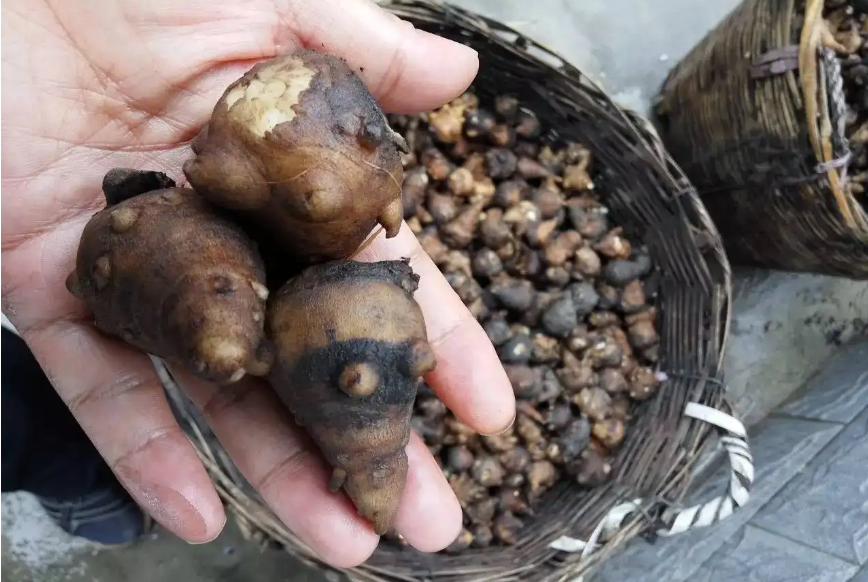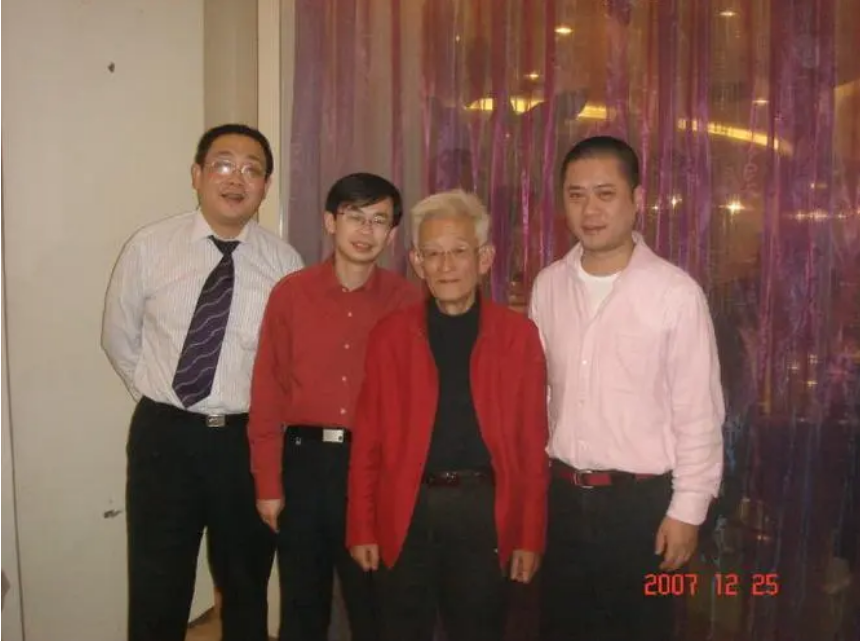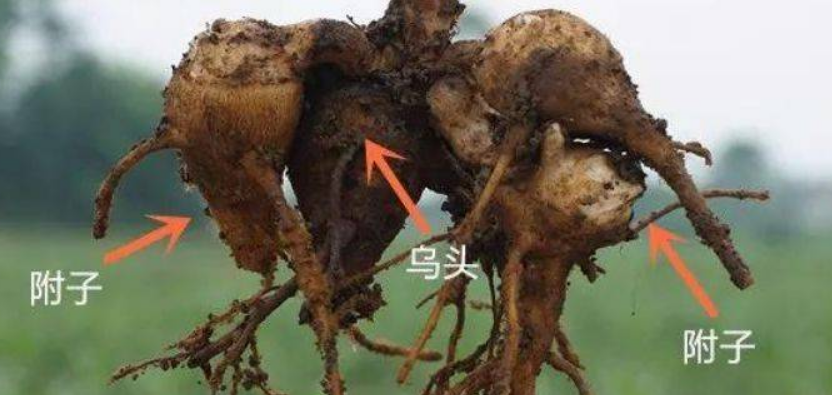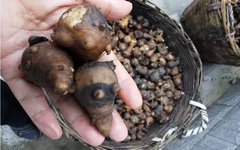
Discussion: A Study on Fuzi;
Fuzi (Aconitum) warms the Yang of the spleen and kidneys, dispelling the three Yin evils. Fuzi warms Yang and treats diseases of the three Yin, making it the primary essential medicine. Its efficacy is vast, and so is the controversy surrounding it, as ordinary people do not understand medical principles or the properties of the herb, only hearing legends of its toxicity leading to death, causing fear. Medical practitioners also tend to avoid it as much as possible. Those who use it without knowledge may indeed suffer from its harmful effects. It must be clarified whether it is the drug’s harm or the misuse by individuals; we cannot wrongfully accuse a life-saving herb without thorough research and discussion.
Si Ni Tang (Four Reversal Decoction), Bai Tong Tang (White Passage Decoction), Fu Ling Si Ni Tang (Poria Four Reversal Decoction), all use raw Fuzi,
Fuzi Xie Xin Tang (Fuzi Heart-Draining Decoction), Zhen Wu Tang (True Warrior Decoction), Fuzi Tang (Fuzi Decoction), all use processed Fuzi,
Si Ni Tang is prepared by boiling three sheng (approximately 720 ml) to yield one sheng (approximately 240 ml) over low heat for about 60 minutes, which is about 240 grams, divided into warm doses (two or three times), with each dose being about 80 to 120 grams, indicating that controlling the dosage allows for safe and bold use.
Gan Jiang Fuzi Tang (Dried Ginger and Aconite Decoction) and Bai Tong Tang also require boiling three sheng to yield one sheng, and must be boiled for over 60 minutes to obtain 200 grams, taken in two doses of about 100 grams each.
Fu Ling Si Ni Tang requires five sheng to yield two sheng, and must also be boiled for over an hour, yielding 400 grams to be taken in seven doses of 140 grams. These three formulas also indicate that controlling the dosage and boiling time allows for the safe and bold use of raw Fuzi.
In modern times, no one dares to use it this way. Even Li Lao uses processed Fuzi in larger doses, occasionally using raw Fuzi. The measurements indicate that one sheng equals 200 grams, and one he equals 20 grams; more water can be added, and it can be boiled longer. It is important to start timing once it boils, boiling for one hour, and raw Fuzi can be used. Processed Fuzi is overly processed and expensive. The management of Chinese medicine is too strict now; raw Fuzi slices are no longer available for purchase, production and trade are prohibited, leading to a one-size-fits-all approach that is merely superficial.

Modern research shows that raw Fuzi contains aconitine, which can kill a cow with just fifteen grams. However, studies have found that boiling raw Fuzi for an hour eliminates its toxic aconitine components, and Zhang Zhongjing also used it raw; this principle can be relied upon. I personally use raw Fuzi, and its price is cheap. Following Li Ke’s methods, I have not seen any toxic effects. Fuzi warms Yang and dries dampness to dispel Yin evils, making it the primary essential medicine. Its potency is strong, and modern people fear its toxicity. In reality, if I were to prescribe, I would also use processed products for careless patients, but I cannot afford to be careless. I must use processed Fuzi; nowadays, many use diluted Fuzi, which is overly processed, and tasting it reveals no spiciness, making it difficult to use effectively, necessitating large doses, which is illegal (and costly). Who dares to break the law? A physician cannot protect themselves; how can they treat diseases? They can only follow the rules. In the past, there were reports of Fuzi poisoning; now there are none, which also illustrates the reality of Traditional Chinese Medicine being constrained. In today’s scientific age, TCM has been severely Westernized, and the concepts of TCM have completely changed. The notion that Chinese herbs are toxic has wronged them; Fuzi, Xi Xin (Asarum), and Ban Xia (Pinellia) are all great generals among herbs. Abolishing their efficacy hinders disease treatment. To claim they are toxic is to throw the baby out with the bathwater; how can we talk about revitalizing TCM? The reality of TCM is even more tragic. While TCM appears to be thriving, it is actually superficial; without profound study of Zhang Zhongjing and understanding the essence of his teachings, revitalizing TCM is mere empty talk.
Here is a case of Fuzi poisoning: a woman had cold limbs and felt cold all over. A physician prescribed a formula containing 6 grams of diluted Fuzi, which was ineffective. She was advised to gradually increase the dosage, and she eventually increased it to 60 grams, still with no effect. Boldly, she doubled it to 120 grams, after which she felt discomfort, her body ached, and her tongue became numb and she could not speak, realizing the dosage was too high. She urgently called her family to prepare a detoxifying soup of licorice and mung beans, which helped her feel better. Later, the pharmacist warned that it was truly dangerous, and the patient claimed Fuzi was indeed toxic. A friend of mine used 45 grams of diluted Fuzi, advised to boil it for four cups and take it in four doses, but ended up carelessly boiling it down to two cups and two doses. If it were not for the processed Fuzi, she might not have tolerated the effects of Fuzi.

Appendix: Emergency Rescue Formula for Fuzi Poisoning by Li Ke
Raw Licorice100grams, Honey100grams, Fang Feng (Siler) 50grams, Black Soybeans50grams, Raw Rhubarb30grams, and Raw Mung Bean Powder50grams. This formula is taken from “Li Ke’s Collection of Clinical Experiences” and is specifically for careless individuals. If the medicine is not appropriate, and Fuzi is misused, it is wrongfully claimed that Fuzi is toxic, allowing Fuzi to take the blame. Fuzi is not toxic; its so-called toxicity lies in its medicinal properties. Understanding how to use it properly and the principles of treatment eliminates the notion of toxicity. Zhang Zhongjing selected this herb; how could it be toxic? Misunderstanding the principles leads to the false claim of toxicity, which is not the fault of the herb but of the misunderstanding of TCM. The study and application of Fuzi should refer to Li Ke.
Appendix: To use a toxic herb, one must first learn how to detoxify. Reprinted from “Emergency Essentials” Volume 24, Chapter on Detoxifying Various Poisons
It is said: Licorice detoxifies all poisons, which is indeed as miraculous as snow melting in hot water. If someone is poisoned by Aconitum or Croton, licorice in the stomach will stabilize them. If poisoned by Rhubarb, drinking scallion soup will cure them. If poisoned by wild yam, drinking earth pulp will stop the symptoms. Such matters are as easy as turning one’s hand; it is essential for everyone to know, yet few are willing to learn, which is truly lamentable. It is said that soybean juice detoxifies all poisons; I have tested it, and it is not as effective as licorice, but it can be combined to make licorice soybean soup, which is particularly effective. If someone takes Yu Hu Wan for vomiting that cannot be stopped, and no other medicine works, blue juice will immediately stabilize them. Such matters must be known; they are established rules and do not require testing. There are many regulations regarding detoxification; if I do not point out a few, learners cannot fully understand, and I provide these examples.
Aconitum, Tian Xiong (Aconitum), and Fuzi are toxic; soybean juice, Yuan Zhi (Polygala), Fang Feng, jujube flesh, and malt sugar are antidotes.
Ban Xia is toxic; ginger juice and boiled dried ginger juice are antidotes.
Thoughts: Fuzi decoctions can be used raw. Gradually increase the dosage in small amounts, and boil it first for 60 minutes compared to other herbs; it is non-toxic and harmless. However, if processed into pills, its potency is greatly increased. If not processed, its toxicity is significant; even a small amount can cause tongue numbness, leading to fear. Overuse or misuse will certainly lead to poisoning and death. The diluted Fuzi used today is overly processed; tasting it reveals no tongue numbness or spiciness, making it difficult to use effectively. If used in large doses, it is illegal (and costly). Who dares to break the law? A physician cannot protect themselves; how can they treat diseases? They can only follow the rules. In the past, there were reports of Fuzi poisoning; now there are none, which also illustrates the reality of Traditional Chinese Medicine being constrained. In today’s scientific age, TCM has been severely Westernized, and the concepts of TCM have completely changed. The notion that Chinese herbs are toxic has wronged them; Fuzi, Xi Xin, and Ban Xia are all great generals among herbs. Abolishing their efficacy hinders disease treatment. To claim they are toxic is to throw the baby out with the bathwater; how can we talk about revitalizing TCM? The reality of TCM is even more tragic. While TCM appears to be thriving, it is actually superficial; without profound study of Zhang Zhongjing and understanding the essence of his teachings, revitalizing TCM is mere empty talk.
In this article, I have reprinted a passage from “Qian Jin” that reminds me of Huang Yuan Yu’s theory, which has not been widely disseminated. “Yet few are willing to learn, which is truly lamentable”; this is the fundamental reason why Huang Yuan Yu’s theory has not been passed down. The transmission of TCM still relies on family techniques; today’s mainstream TCM is based on family traditions, while TCM has declined. The core reason is the lack of unified formatting, and few are willing to learn.

Appendix: An article on Fuzi, for further reading, excerpted from “Defending Yang Qi Against Illness” in memory of the great physician Li Ke
For the locals of Jiangyou, Fuzi is both a medicinal material and a food ingredient, available for sale in shops on Jiangyou streets. Every year during the winter solstice, locals use processed Fuzi to stew lamb, ensuring they do not feel cold throughout the winter. However, young people generally do not eat it, as it can easily cause nosebleeds due to their robust constitution, which cannot withstand the strong medicinal power of Fuzi. This custom of treating a toxic herb as a food ingredient seems incredible to people from Jiangsu and Zhejiang.
Master of Chinese Studies Nan Huai Jin recounted a story in his book “Taoist Esotericism and Eastern Mysticism”; during the Anti-Japanese War, he arrived in Sichuan and met a famous TCM physician known as Fu Yang Ye. This Fu Yang Ye constantly boiled a large pot of Fuzi soup at home, which anyone could drink. I often felt puzzled by this medical case. Upon reaching Emei Mountain, I realized that the monks there drank Fuzi soup. The founder of the Daping Temple on Emei Mountain, during the temple’s early construction, suffered many hardships and often foraged for Aconitum (Fuzi) to eat when he was cold and hungry. Later, the monks established a tradition of fasting and only drinking Fuzi soup on a designated day each year to commemorate the founder’s struggles. By the time this day arrived, the Fuzi had already been boiled for over a day. Thus, everyone drank Fuzi soup every year without anyone dying. I suddenly realized that the toxicity of long-boiled Fuzi had likely dissipated, leaving only the components that increase warmth. No wonder the Fu Yang Ye’s pot of Fuzi soup was constantly boiling day and night.
Modern pharmacological studies show that boiling Fuzi over high heat for one hour is the peak of its toxicity decomposition. Thus, for patients with severe heart failure, the extreme toxicity of Fuzi can be a life-saving elixir. Fuzi (Aconitum), according to modern testing, can kill a cow with just fifteen grams. If such a large animal can be poisoned, what would happen if a human consumed it? If used incorrectly, it can kill; if used correctly, it is a life-saving elixir. I have used Fuzi for decades, and I have never encountered a case of Fuzi poisoning in my prescriptions. Instead, I have participated in the rescue of patients poisoned by Aconitum, and the doses used were very small. This indicates that the key to using Fuzi lies in understanding when to use it and when not to, avoiding the one-sided pursuit of large or small doses, which is crucial.
(Micro-business—please do not disturb, TCM account owner—please do not disturb)For book purchases and group learning, please add friends Click to view, thank you for sharing, read Huang Yuan Yu, learn ancient TCMSelf-study TCM, only read Master Huang, avoid detours, quickly get startedSelf-study Zhang Zhongjing, only read Master Huang, the Four Saints and One Pulse, the standard for physicians

